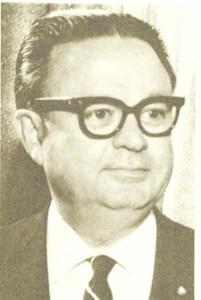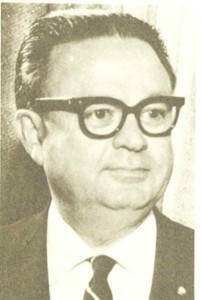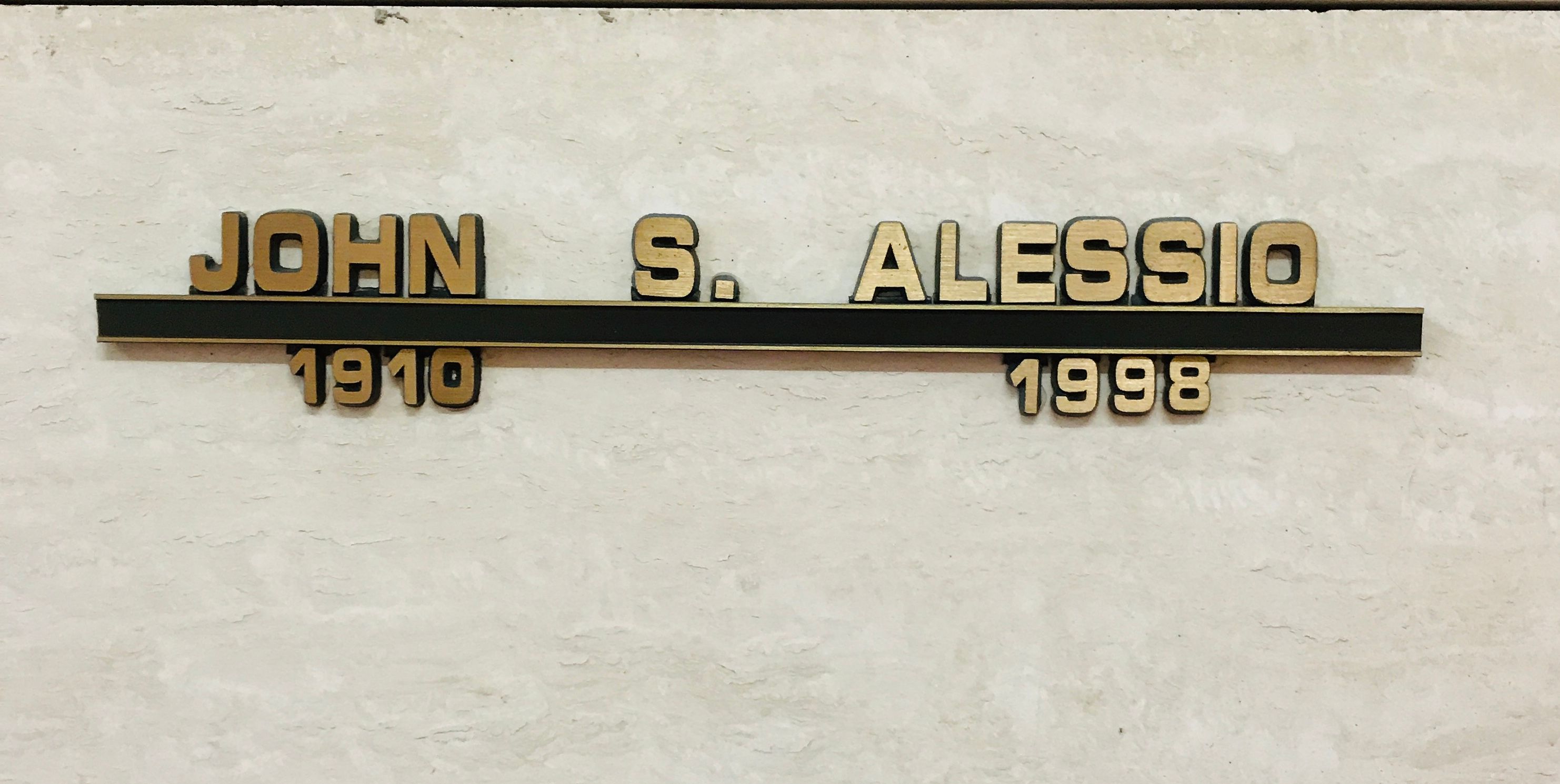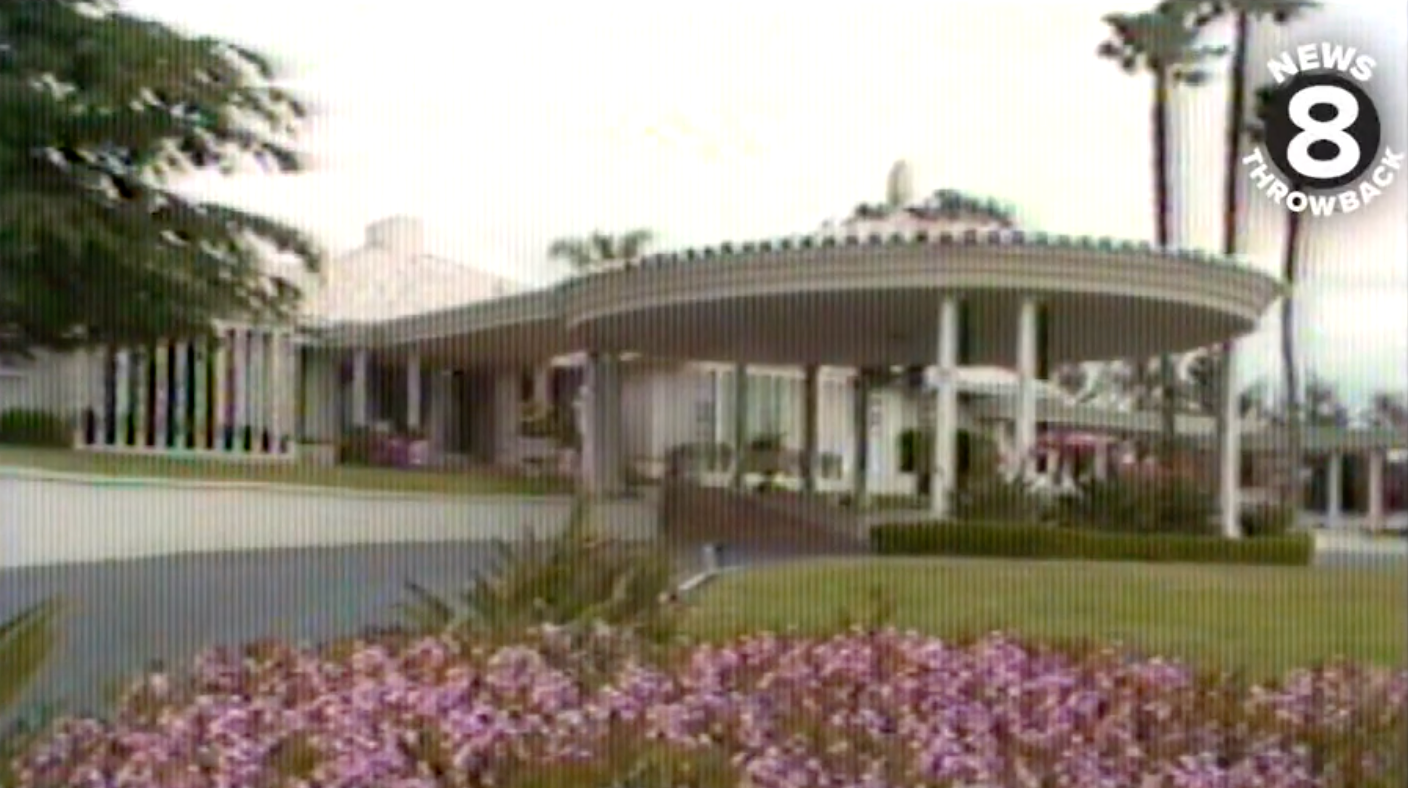1963 - Mr. San Diego
John S. Alessio; Influential Cross-Border Businessman
March 26, 1998|MYRNA OLIVER | TIMES STAFF WRITER
John S. Alessio, who moved from shoeshine boy to multimillionaire banker and businessman, racetrack operator, philanthropist, gubernatorial advisor and federal prisoner, has died. He was 87.
Alessio, also known for helping develop safety helmets for jockeys, died Tuesday of cancer at Green Hospital of Scripps Clinic in La Jolla.
As head of his family's Alessio Corp., he played a prominent role in Tijuana and San Diego business, entertainment and community events for seven decades.
Alessio was a friend and advisor to the late California Gov. Edmund G. (Pat) Brown, and a major financial contributor to his campaigns. He helped create the controversial Coronado Bridge by urging sale of construction bonds and suspension of ferry service until the bridge paid for itself. Alessio and his brothers owned the historic Hotel del Coronado from 1960 until 1963.
Alessio also owned San Diego's Kona Kai Club on Shelter Island, Mr. A's restaurant and the Alessio headquarters building, San Diego's 5th Avenue Financial Centre, where he had operated his shoeshine stand as an adolescent.
Born in 1910 in Nutter Fort, W. Va., Alessio was the fourth of seven sons of an Italian immigrant couple. His father, Dominic, was a coal mine superintendent with respiratory problems who moved his family to San Diego in 1920 for health reasons.
"The 'Grapes of Wrath' people had nothing on us," John Alessio told The Times in 1966, comparing his family's poverty to that of the Dust Bowl refugees of John Steinbeck's Depression-era novel.
The elder Alessio bought a pool hall and a shoeshine stand, and put two sons to work in them. John left school after seventh grade.
One of his shoeshine customers was the late financier C. Arnholt Smith, who made him a protege and in 1929 gave him a job as messenger in his Banco del Pacifico in Tijuana.
"The first 10 days I was at the bank, I quit three times because the Mexicans resented an American coming in," he said years later. But he stayed, using his Italian to learn Spanish and his English to bring in the business of American owners of Tijuana bars and shops who had done their banking north of the border. By 1943, Alessio was manager of the bank.
Four years later, he became an advisor to Tijuana's Caliente horse racing track and, after reporting unethical behavior to the Mexican authorities, was put in charge of running it.
There, after seeing a jockey die in a fall from his horse, he helped design a protective helmet for jockeys. The Jockey Guild of America gratefully named Alessio "Man of the Year" in 1957.
He also made money, inventing new types of race wagering. He was particularly known for his innovation of the "five-ten," providing enormous payoffs for anybody who could pick the winners of the fifth through 10th races. In the 1940s delivery boys and porters were winning five-figure sums under the system, which Alessio adapted from South American tracks.
Alessio retained his position at the bank and in 1948 had his first brush with the law in Mexico. He and seven other bank executives were held for trial for 117 days on charges of breach of trust and fraud, for allegedly mishandling more than $4 million in loans to a Baja California brewery. All eight subsequently were freed without conviction by a Tijuana federal judge.
North of the border, Alessio was less lucky. In 1971, he pleaded guilty to U.S. income tax evasion over profits from Caliente, and was sentenced to three years in prison and a $20,000 fine. He served about two years at federal institutions in Terminal Island, Lompoc and McNeil Island in Washington.
As a philanthropist, Alessio helped build 11 elementary schools in Tijuana and sponsored an annual Christmas party for 15,000 poor children.
He was an advisor to the governor of Baja California, a delegate to the Border Cities Chamber of Commerce Conference and a director of the Tijuana Rotary Club.
Alessio is survived by his wife of 65 years, Edna; one son; three daughters; a brother; 15 grandchildren; and three great-grandchildren.
______________________________
Video: https://youtu.be/7l7Sa0fDX48
1963 - Mr. San Diego
John S. Alessio; Influential Cross-Border Businessman
March 26, 1998|MYRNA OLIVER | TIMES STAFF WRITER
John S. Alessio, who moved from shoeshine boy to multimillionaire banker and businessman, racetrack operator, philanthropist, gubernatorial advisor and federal prisoner, has died. He was 87.
Alessio, also known for helping develop safety helmets for jockeys, died Tuesday of cancer at Green Hospital of Scripps Clinic in La Jolla.
As head of his family's Alessio Corp., he played a prominent role in Tijuana and San Diego business, entertainment and community events for seven decades.
Alessio was a friend and advisor to the late California Gov. Edmund G. (Pat) Brown, and a major financial contributor to his campaigns. He helped create the controversial Coronado Bridge by urging sale of construction bonds and suspension of ferry service until the bridge paid for itself. Alessio and his brothers owned the historic Hotel del Coronado from 1960 until 1963.
Alessio also owned San Diego's Kona Kai Club on Shelter Island, Mr. A's restaurant and the Alessio headquarters building, San Diego's 5th Avenue Financial Centre, where he had operated his shoeshine stand as an adolescent.
Born in 1910 in Nutter Fort, W. Va., Alessio was the fourth of seven sons of an Italian immigrant couple. His father, Dominic, was a coal mine superintendent with respiratory problems who moved his family to San Diego in 1920 for health reasons.
"The 'Grapes of Wrath' people had nothing on us," John Alessio told The Times in 1966, comparing his family's poverty to that of the Dust Bowl refugees of John Steinbeck's Depression-era novel.
The elder Alessio bought a pool hall and a shoeshine stand, and put two sons to work in them. John left school after seventh grade.
One of his shoeshine customers was the late financier C. Arnholt Smith, who made him a protege and in 1929 gave him a job as messenger in his Banco del Pacifico in Tijuana.
"The first 10 days I was at the bank, I quit three times because the Mexicans resented an American coming in," he said years later. But he stayed, using his Italian to learn Spanish and his English to bring in the business of American owners of Tijuana bars and shops who had done their banking north of the border. By 1943, Alessio was manager of the bank.
Four years later, he became an advisor to Tijuana's Caliente horse racing track and, after reporting unethical behavior to the Mexican authorities, was put in charge of running it.
There, after seeing a jockey die in a fall from his horse, he helped design a protective helmet for jockeys. The Jockey Guild of America gratefully named Alessio "Man of the Year" in 1957.
He also made money, inventing new types of race wagering. He was particularly known for his innovation of the "five-ten," providing enormous payoffs for anybody who could pick the winners of the fifth through 10th races. In the 1940s delivery boys and porters were winning five-figure sums under the system, which Alessio adapted from South American tracks.
Alessio retained his position at the bank and in 1948 had his first brush with the law in Mexico. He and seven other bank executives were held for trial for 117 days on charges of breach of trust and fraud, for allegedly mishandling more than $4 million in loans to a Baja California brewery. All eight subsequently were freed without conviction by a Tijuana federal judge.
North of the border, Alessio was less lucky. In 1971, he pleaded guilty to U.S. income tax evasion over profits from Caliente, and was sentenced to three years in prison and a $20,000 fine. He served about two years at federal institutions in Terminal Island, Lompoc and McNeil Island in Washington.
As a philanthropist, Alessio helped build 11 elementary schools in Tijuana and sponsored an annual Christmas party for 15,000 poor children.
He was an advisor to the governor of Baja California, a delegate to the Border Cities Chamber of Commerce Conference and a director of the Tijuana Rotary Club.
Alessio is survived by his wife of 65 years, Edna; one son; three daughters; a brother; 15 grandchildren; and three great-grandchildren.
______________________________
Video: https://youtu.be/7l7Sa0fDX48
Family Members
Sponsored by Ancestry
Advertisement
Advertisement

















